Learn about literature and language to expand your thinking and know yourself
Responsible for English language education : Tara McIlroy(Associate Professor)
2025/04/10
研究紹介
OVERVIEW
We interviewed Associate Professor Tara McIlroy (responsible for English language education) from the Center for Foreign Language Education and Research at Rikkyo University about her research and future plans.
1. Please tell us about your research topic and the research you are currently working on.
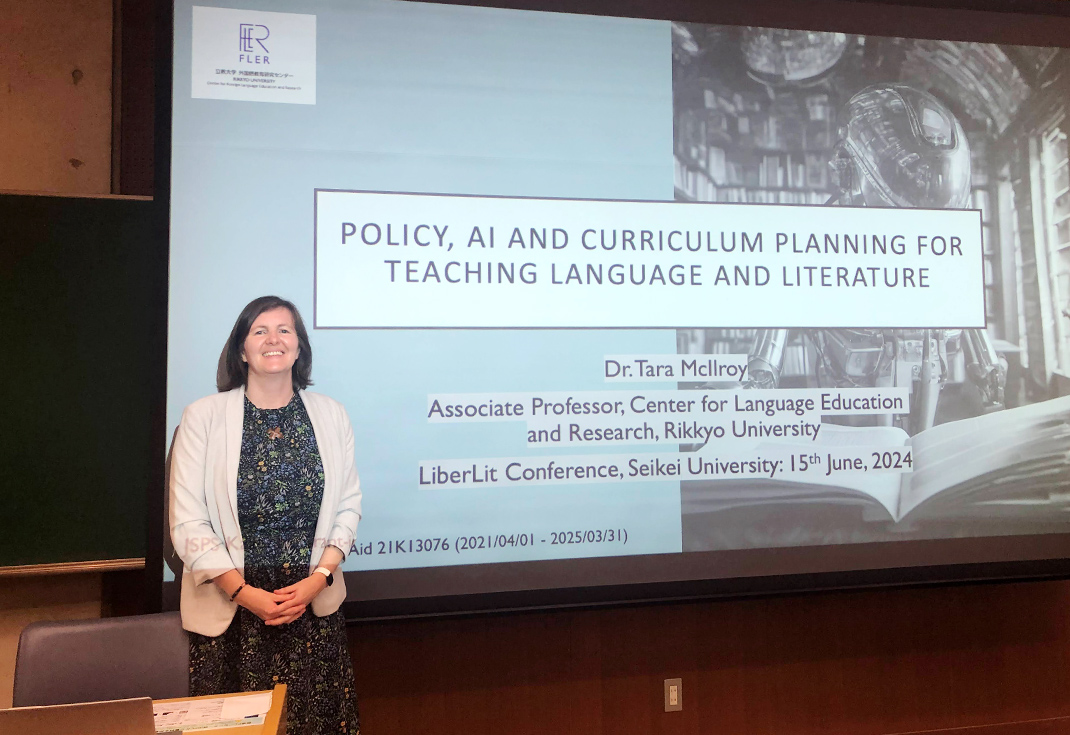
Panel presentation on emerging technology trends in literature and language teaching, June 2024
The focus of my practitioner-based research is in the category known as action research. I am interested in classroom-based questions or problems and how to solve them. For example, what types of texts are useful for foreign language learners? How can teachers estimate the difficulty level of literature? What kinds of literary competences do learners already have when they come to university? What kinds of reading backgrounds do today's learners have, and how are these changing in the digital age? What are some ways to teach useful skills such as literary critique and response?
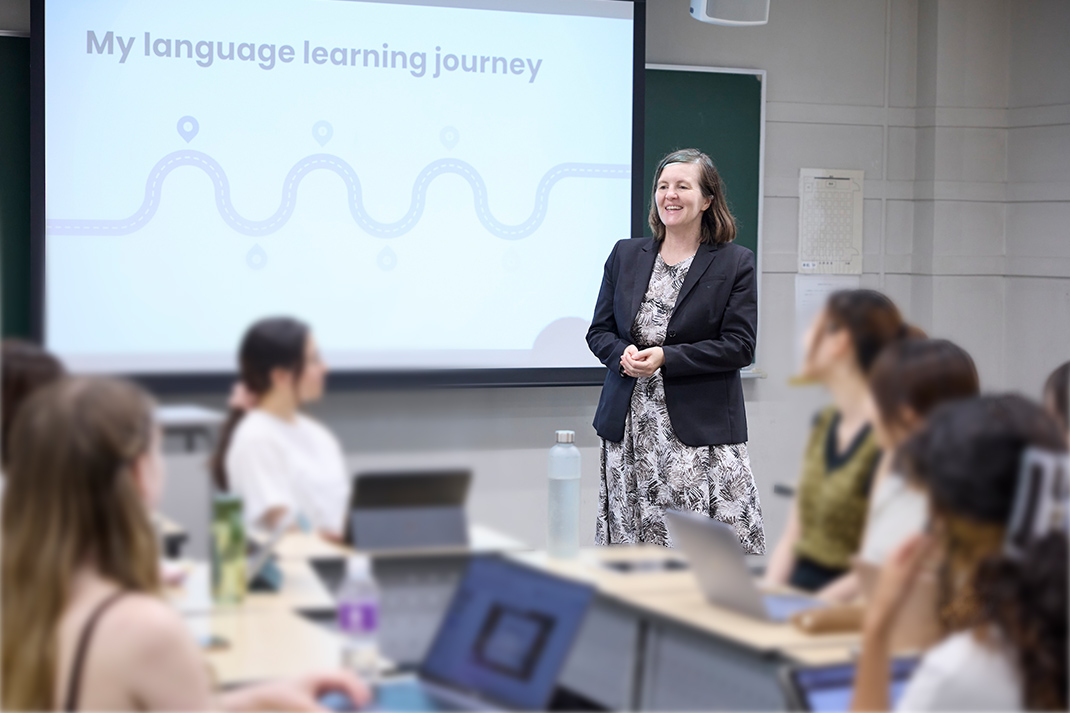
Rikkyo University Electives Course Teaching (2023)
2. Please tell us how you became interested in your research.
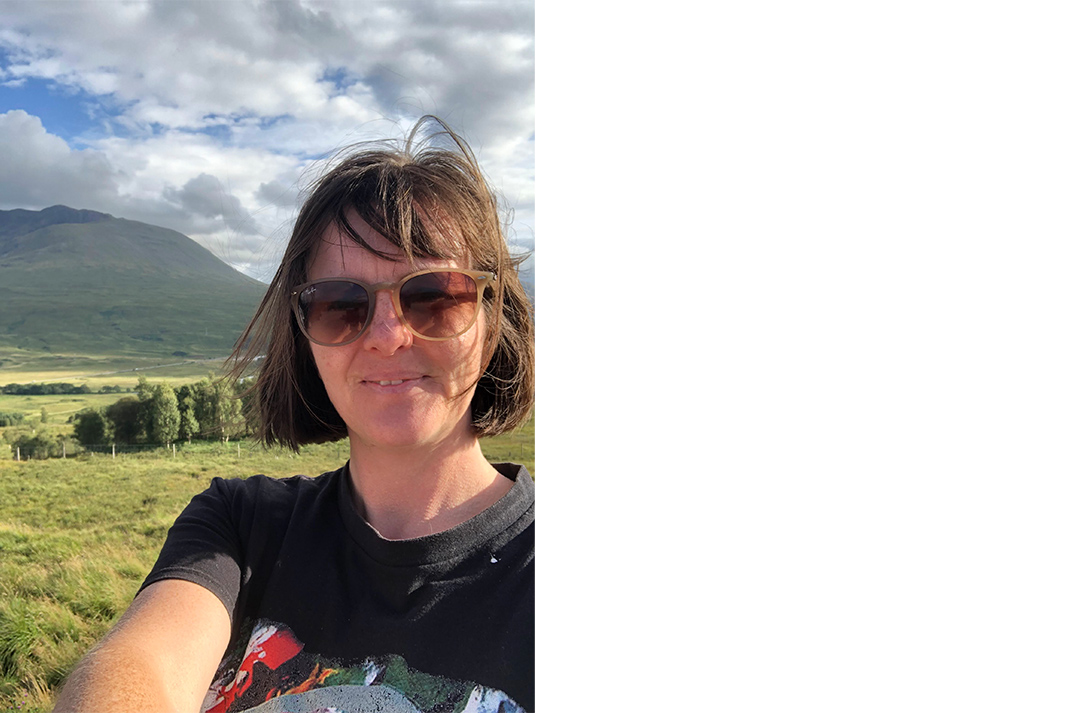
Taken on a family hiking trip to Glencoe, Scotland (2023)
When I worked in a high school in New Zealand, we had many students from different countries, and some of them had only learned English after years of unschooling (refugees) or had low literacy for other reasons. One possible way to increase literacy skills was through spending more time reading and discussing literature. One memorable group was a set of younger students matched with seniors (school leaders, athletes and other volunteers) to read with younger students using a program called “peer reading”. In cooperation with a specialist learning support teacher, the older students were trained to work with younger readers and ask questions along the way as they read together. The students with the weakest reading skills made excellent progress when reading books along with older students they admired. After one term of peer reading, some younger students had improved by several years of reading age. It was a remarkable experience and one that showed the potentially life-changing effects of engaging with literature.
3. What do you think is the most interesting and rewarding aspect of your research?
One of the ongoing concerns in education today is the role of technology and how it can be used effectively for learning. It has been said that digital reading is reducing the focus and attention span of students, and that digital tools are not allowing students to deeply engage with their reading. Yet this view does not take into account the amount of social interaction occurring when people engage with online communities to talk about their interests and reading backgrounds, sharing book recommendations and remixing stories using new genres and modes. These things are interesting to researchers for teachers at the current time, as literary interactions continue to evolve in the digital age.
4. Please tell us about your experiences and what you learned during your student days (university, graduate school, studying abroad, etc.).
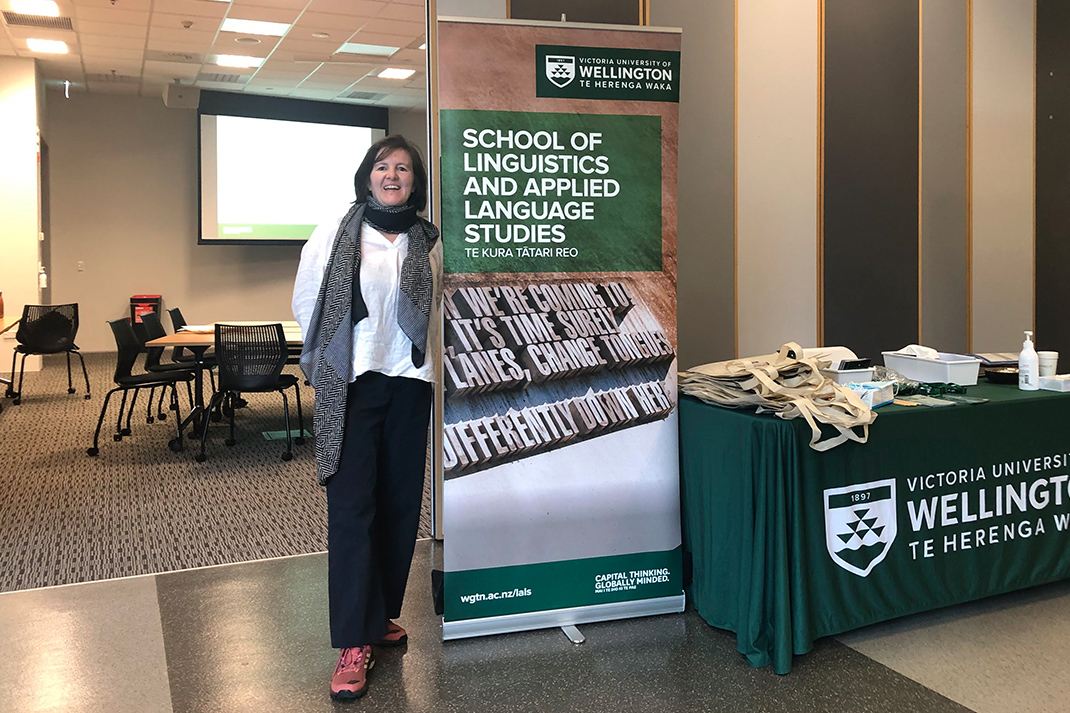
In Wellington. New Zealand, December 2023. Returning to the place where I studied applied linguistics to attend an academic conference
5. Please tell us about your current job at the university. What is it like? What are the fun and challenging aspects of it?
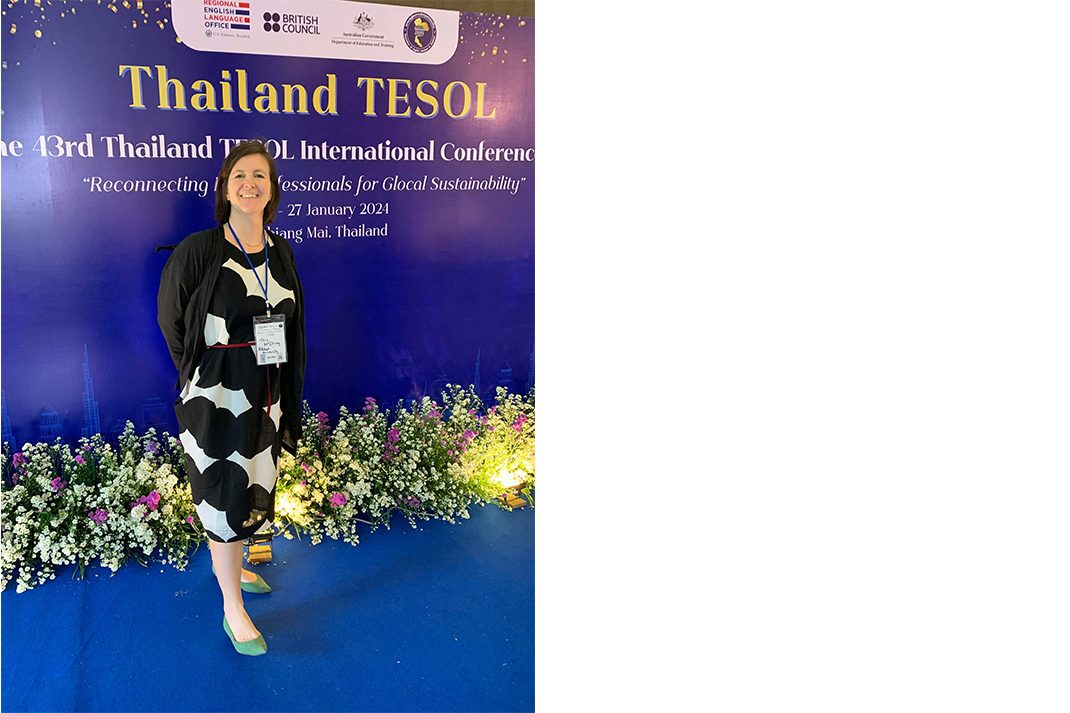
Thailand TESOL, January 2024
Recently, I have been working on a literature and language-based policy project in which international approaches to literature teaching have been the focus. Having the opportunity to work with scholars from different countries has shown me the importance of using content such as literature in language teaching and learning.
6. Future plans
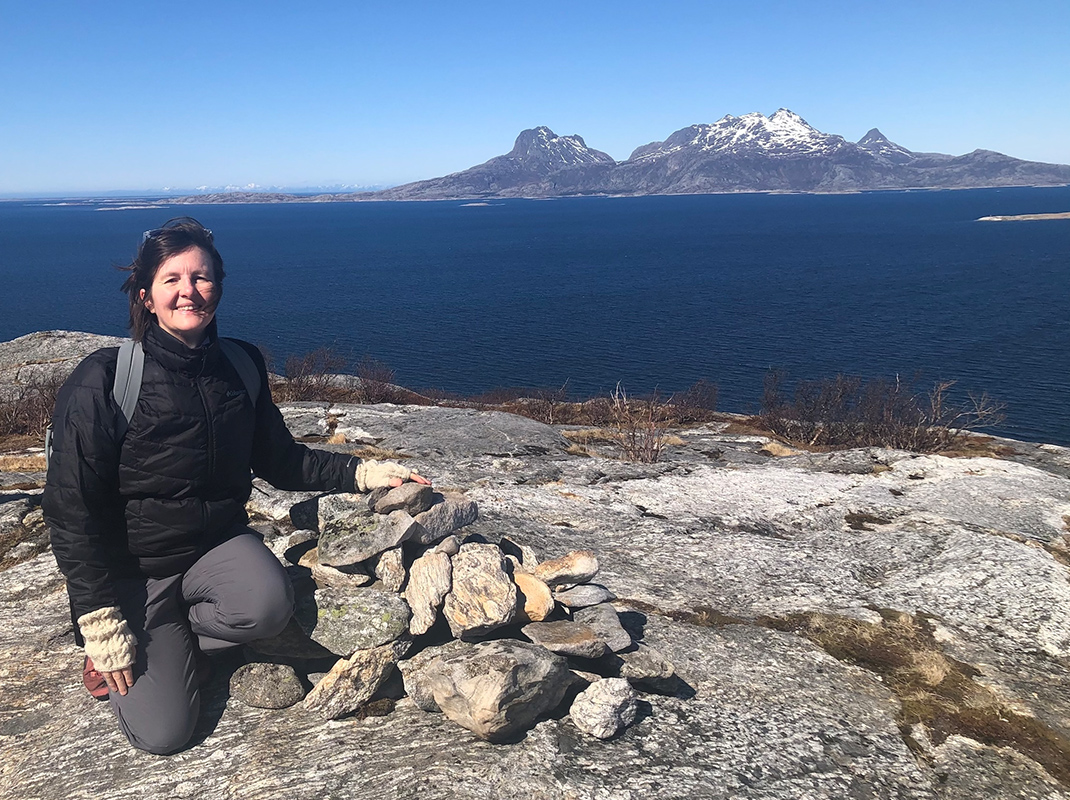
Visiting Norway for the Reading for in-depth English Learning (RidEL) Conference, May 2024
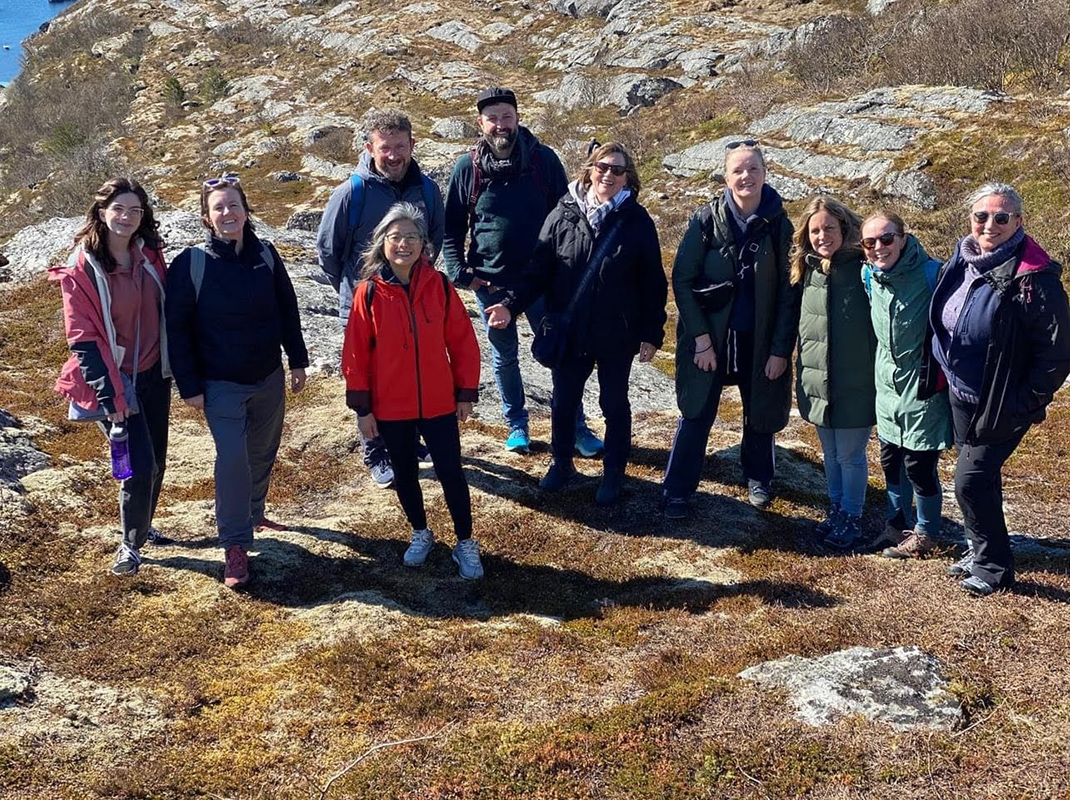
With researchers from Canada, Germany and Spain at the Reading for in-depth English Learning (RidEL) Conference at Bodø, Norway. Photo by RidEL Conference (2024)
※記事の内容は取材時点のものであり、最新の情報とは異なる場合があります。
